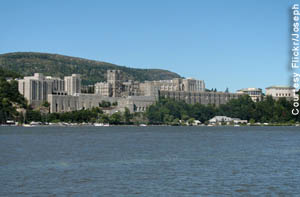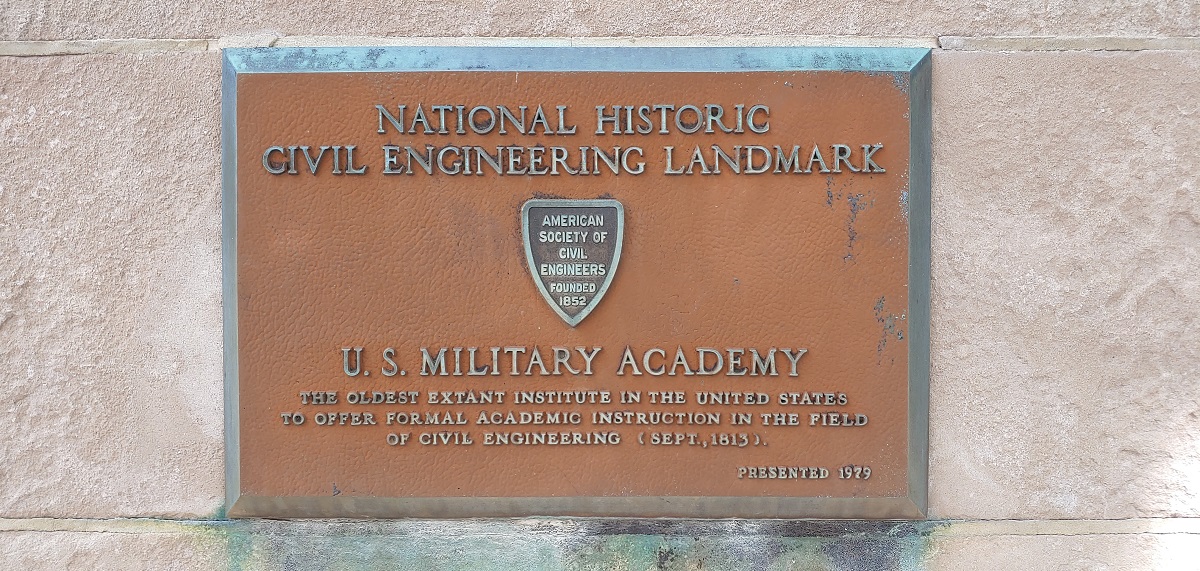United States Military Academy at West Point
41 23 34.8 N
73 57 28.8 W
"In this beautiful place, the fairest among the fair and lovely Highlands of the North River, shut in by deep green heights and ruined forts, long a glittering path of sunlit water, all around with memories of Washington, and events of the revolutionary war, is the Military School of America. It could not stand on more appropriate ground, and any ground more beautiful can hardly be."
- Charles Dickens American Notes, 1842

In 1794, Congress authorized and President Thomas Jefferson signed into law the raising of a Corps of Artillerists and Engineers (now the United States Army Corps of Engineers) to be educated and stationed at the newly created United States Military Academy. The U.S. Military Academy was the first school of engineering in America to offer formal instruction in civil engineering.
Engineer Sylvanus Thayer was appointed superintendent of West Point in 1817, and implemented sweeping reforms. He was responsible for bolstering academic standards, hiring more faculty, and instituting the Academy's famed "honor system." For the USMA's first 50 years, graduates were responsible for the construction of the bulk of the nation's initial railway lines and harbors, as well as many bridges and roadways.
Facts
- One of its primary objectives involved the application of science to military problems; but as military needs subsided, the focus shifted to canals, roadways, and other essential engineering concepts that would allow the westward expansion of the U.S.
- The first 15 years were a struggle for the young academy. Small in size and working with minimal resources, this early period of its history has been described as having no definite or consistent system of instruction or examination.
- Thayer established admissions standards for new cadets and a board of visitors to inspect the academy annually and recommend improvements to the curriculum. When he left the academy in 1833, he was acknowledged as the "Father of the Military Academy."
-
Engineer Sylvanus Thayer was appointed superintendent of West Point in 1817 and immediately implemented sweeping reforms. He instituted the academy's famed "honor system," added faculty to reduce class sizes, and required cadets to be graded on each subject every day.


